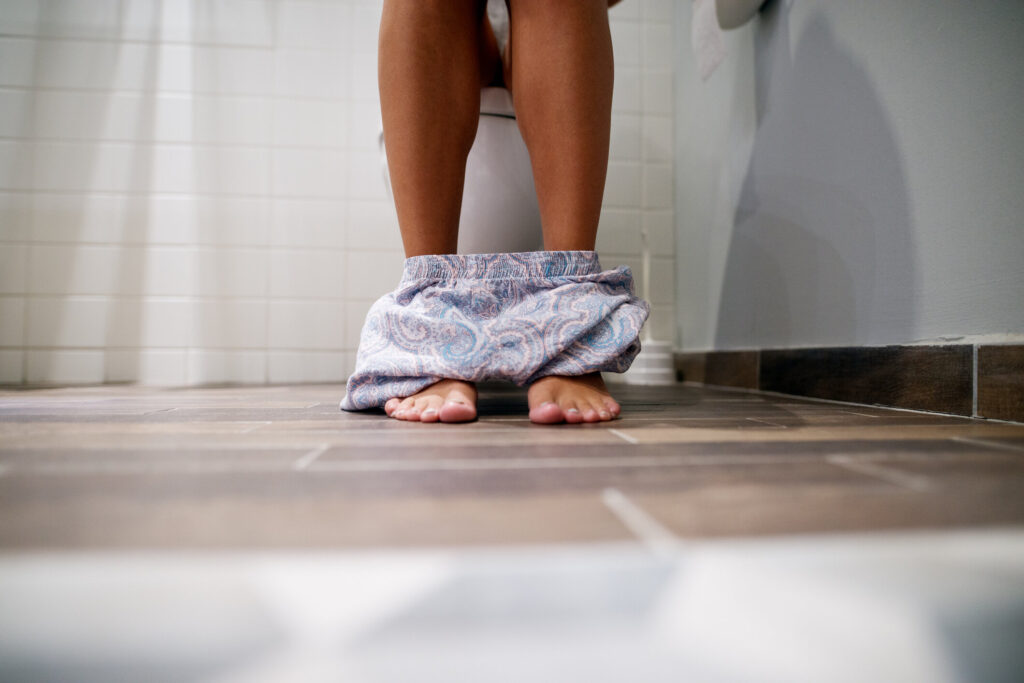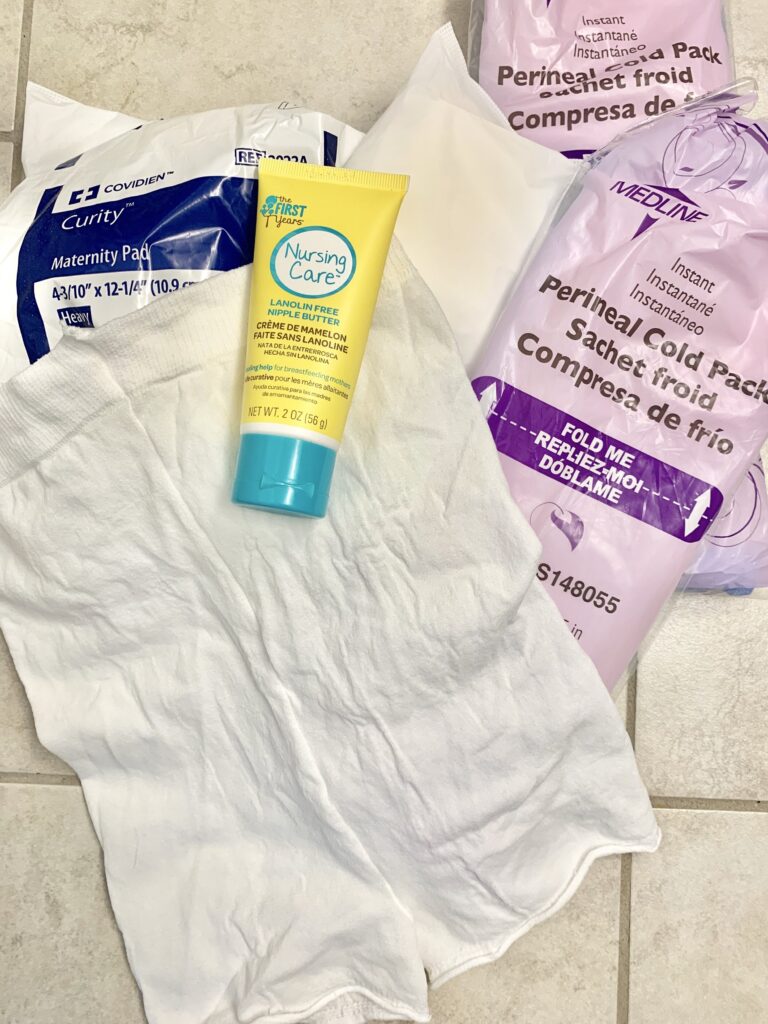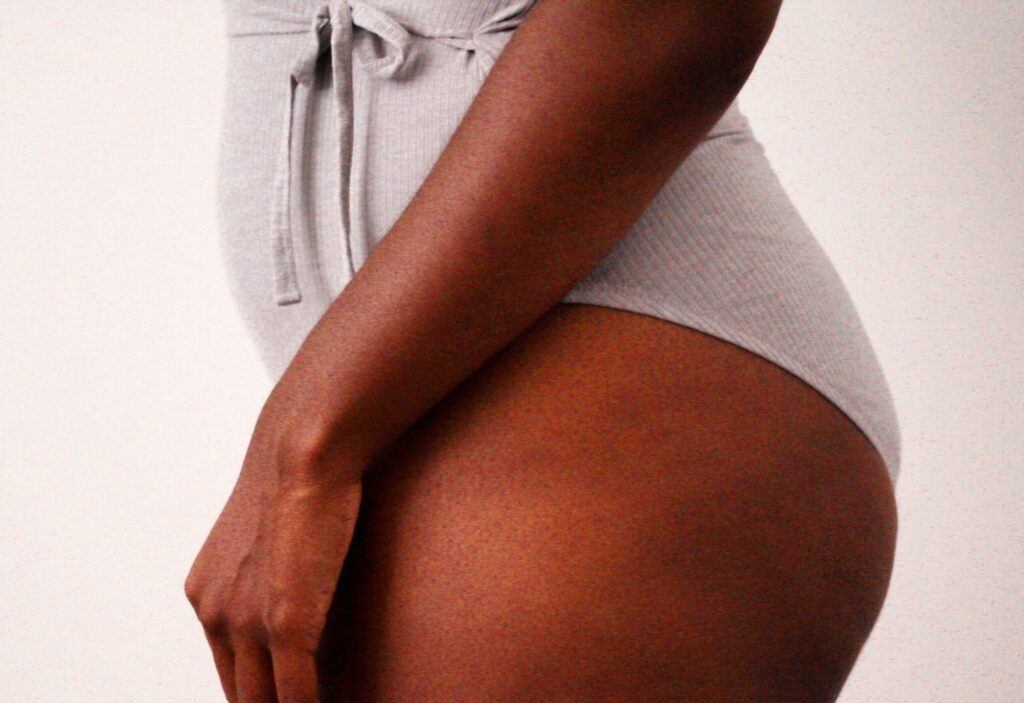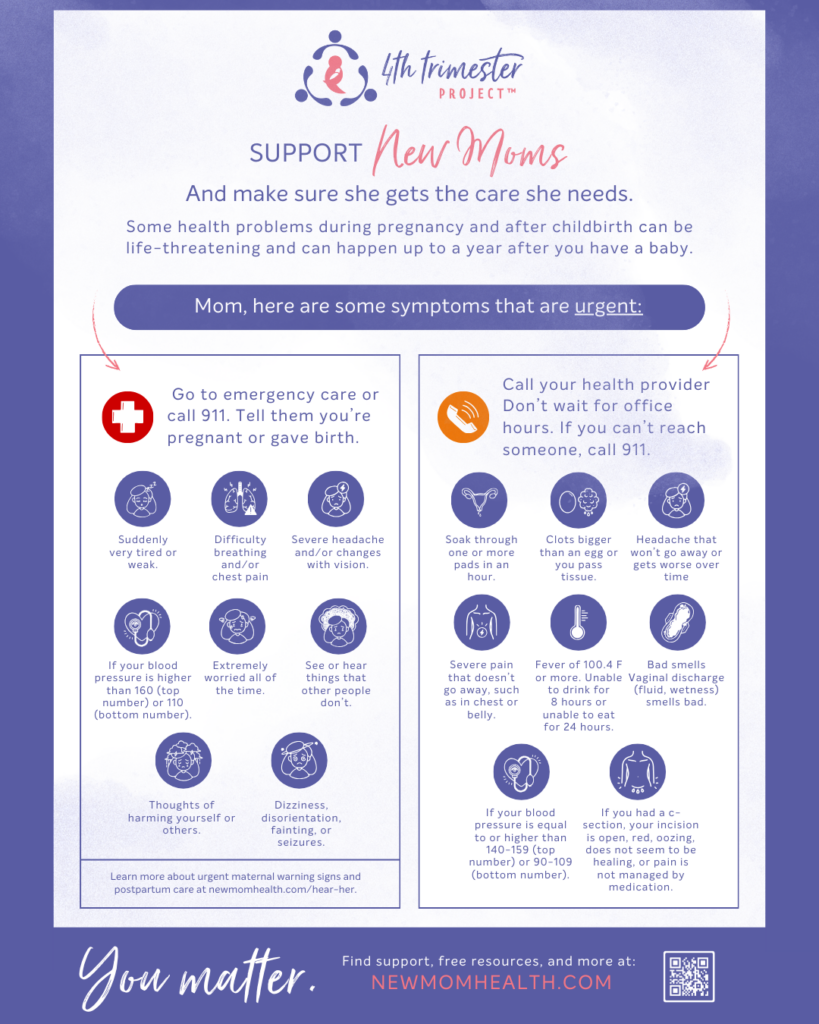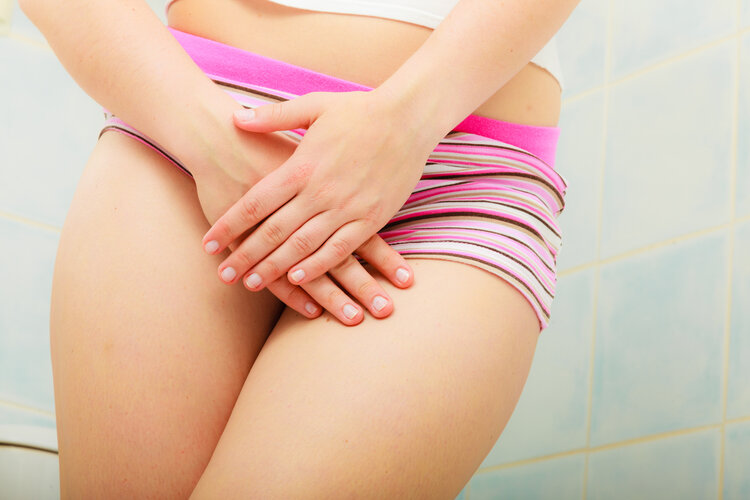
A hemorrhoid is a painful swelling of a vein in the rectum. After having a baby – especially after vaginal childbirth – many women develop hemorrhoids. Symptoms include pain, itching, bleeding after having a bowel movement (pooping), or a swollen area around the anus. This common issue is uncomfortable and can be treated.
Things to do that might help:
- You can use a sitz bath (a basin filled with warm water that fits on your toilet) or a bath to soak yourself in warm water. This will help hemorrhoids to shrink. It can help to do this two to four times a day.
- Apply witch hazel to the skin around your rectum (on the hemorrhoids) to soothe. Keep the witch hazel cool in the refrigerator, then gently apply with cotton balls or pads. Tucks pads are also sold over the counter and come pre-medicated with witch hazel.
- Sit on a pillow or waffle cushion or even a breastfeeding pillow to relieve pressure on the rectum. Sitting in a rocking chair or using a recliner may also be more comfortable than sitting in a hard, straight chair.
- Hemorrhoid creams, ointments, suppositories, or sprays as well as stool softeners are available over-the-counter and can provide short-term relief. Preparation H is a common brand. Your health care provider can also recommend a brand that may be best for you.
- Increase dietary fiber (such as eating lentils, beans of all kinds, peas, broccoli, brussels sprouts, avocados, berries, pears, bananas, apples, bran flakes, oatmeal, whole wheat pasta, beets, almonds, unbuttered popcorn, to name a few) and your intake of fluids by having a bottle of water near you as much as possible. This will help to prevent constipation.
- If the pain does not go away as expected, contact your health care provider for more help.
Normally, women’s bowel movements will vary during late pregnancy and the early postpartum period. Constipation can occur. The fecal matter (poop) gets stuck and the muscles of the bowel aren’t able to push it out as much as usual. This can be uncomfortable.
Things to do that might help
- Drink to thirst, aiming for eight to ten large glasses of fluid a day.
- Try eating prunes – they are a mild laxative. Over-the counter-products are also available.
- Try to get both rest and movement every day. Not easy to do for new moms but even some gentle walking and short naps can help the healing process.
- Drink warm liquids each morning. The caffeine from tea or coffee might help things get moving in the morning too. If you are breastfeeding you may want to limit how much caffeine your drink.
- Eat foods such as bran, fruits, green vegetables and whole grain cereals and breads (see list above).
- A mild laxative or fiber supplement can be used if other measures do not work. The stool softener Colace or laxative Miralax can help with constipation. Metamucil or Benefiber are fiber supplements that can help as well.
- Call your health care provider if you do not have a bowel movement by the third or fourth day after having your baby or are otherwise uncomfortable.

